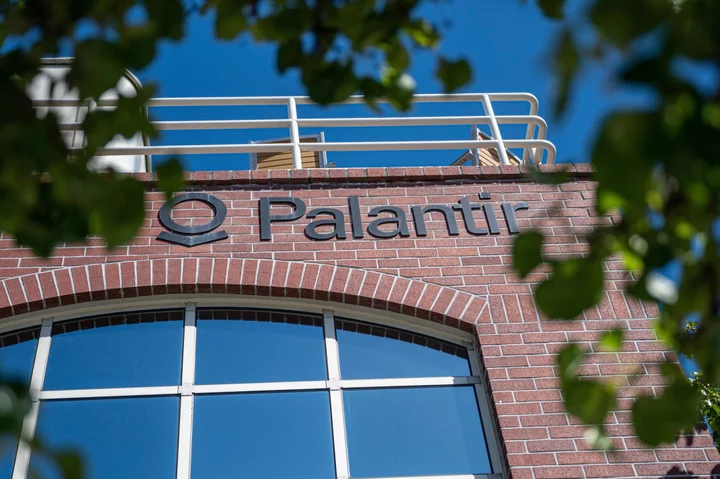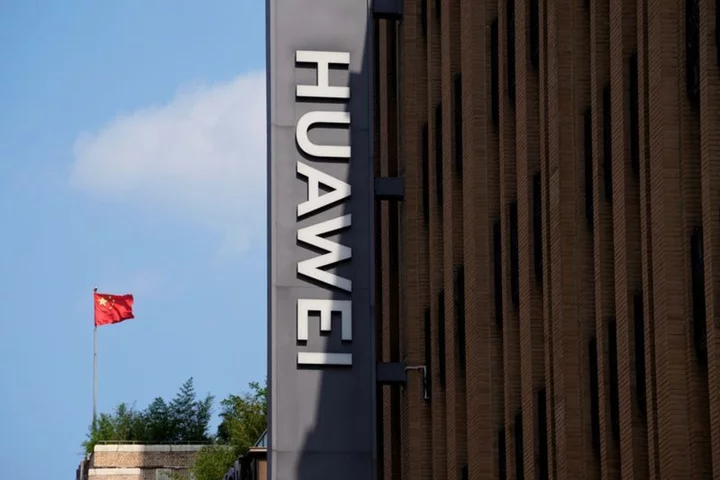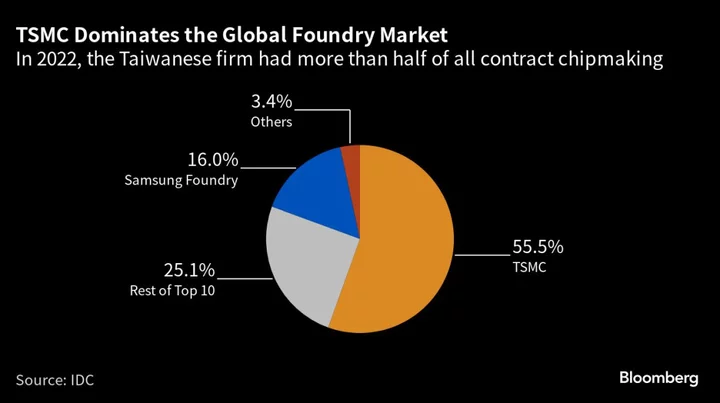Palantir Technologies Inc., the software maker that has for years sold artificial intelligence-powered programs to governments, sank by the most in eight months after issuing a sales forecast that disappointed Wall Street.
The Denver-based firm expects to bring in $2.21 billion in revenue during 2023, falling toward the low end of Wall Street’s estimates. The stock was down 9% to $16.34 at 9:51 a.m. in New York.
“We are just not impressed,” Citigroup Inc. analysts said in a note, pointing to Palantir’s “low-teens” revenue growth rates and stronger AI tailwinds for its peers.
Palantir has been selling predictive data analysis software to US government agencies and major companies for nearly two decades. Long a player in AI, Palantir began touting those capabilities more aggressively earlier this year as the fervor over the technology and its capabilities intensified. Its shares have soared by more than 150% since the start of the year as a result, especially after it described demand for its AI products as unprecedented.
“We have a good chance at becoming the most important software company in the world,” Chief Executive Officer Alex Karp told Bloomberg during an interview Monday.
Palantir’s forecast for profits were stronger, with a forecast of $576 million in adjusted income from operations, exceeding Wall Street expectations of $530.3 million, according to estimates complied by Bloomberg. The company announced a stock buyback program of as much as $1 billion.
Recently, the company launched Artificial Intelligence Platform, or AIP, to help companies and governments use AI to analyze data and make decisions, including in battlefield contexts. The product launched with no pricing strategy and the audacious goal, described by Karp, to “just take the whole market.”
In a call with investors on Monday, Karp described huge demand from customers for the product, launched about 10 weeks ago. “The reception to this is unlike anything we’ve ever seen,” he said.
Palantir’s AI platform now has users across more than 100 organizations, Karp said in a letter to shareholders Monday, and the company is in sales discussions with more than 300 additional enterprises.
Palantir beat analysts’ estimates for second-quarter profit and revenue. Adjusted operating income increased by 25% to $135 million. Revenue was $533 million, up from $473 million in 2022.
The company’s commercial revenue grew faster in the US than other markets, but came in slightly under analysts’ estimates. Its revenue from government clients meanwhile rose 15% to $302 million, beating forecasts of $301.8 million.
Karp told Bloomberg that Palantir aims to be included in the S&P 500, which requires that companies maintain certain milestones — including being profitable for a year. Palantir now has been profitable for three consecutive quarters.









